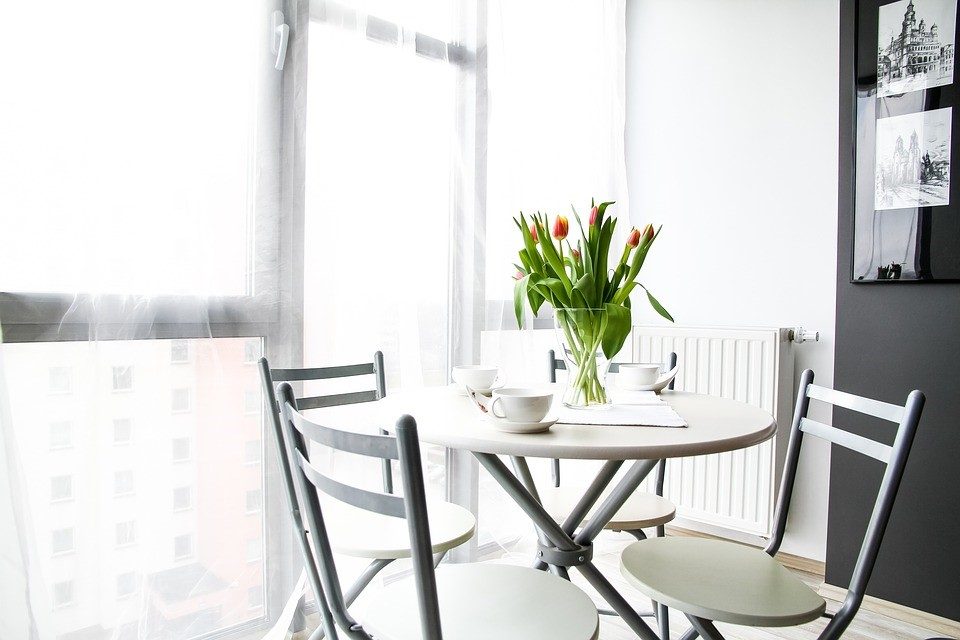Moving can be a difficult task for anyone, especially if moving requires you to downsize on your living expenses. It does make living cheaper, but it still hurts to leave things behind or put them up for sale since you can’t bring them to a smaller apartment. But things don’t have to be all bad when moving from a larger home to a smaller one. Making the shift to go for smaller and cheaper choices is not just economically efficient for you but also an opportunity to bring less baggage, whether emotional or literal, into your new home. After all, less is more.
Remodelling is a more challenging task
Smaller spaces mean smaller needs for renovating; this doesn’t only make it an easier job regarding not needing a more substantial budget when it comes to remodelling, but it also means that the smaller details matter more. What narrow hallways and windows you have should contain the most space in your home accented by black or white palette-coloured walls to invoke a sense of vastness. Regarding changing your ceiling fixtures, floor installation, and furniture arrangement, you’ll face a more significant challenge given that you have a more limited workspace.
But don’t worry; with every challenge comes the joy of making the most out of a tricky situation. You’ll need to be smarter with the decisions that you have to make as a homeowner. A good tip in making your living space larger is optimising your house’s flow. If you’re finding it too difficult to execute your layout, you can look towards design consultants like those from Found Design Studio that deals with helping you to visualise your dream living space. They have units with compact spaces as well as popup stores with abundant space.
You can get a brief idea of how your room is to look once you have enough input from professionals. But after putting it on paper, you would still have to implement it to materialize the plan. And to do that, covey your vision to Matt Baker Contracting or other agencies with similar capabilities if you don’t know how to go about it. Once the plan has been set in motion, all you would have to do is wait until the project is complete.
Cleaning is a breeze
One of the biggest perks of living in small spaces is not having too many places to clean. You’ll start realising that your detergents and floor wax last longer as having fewer places to clean gives you more time for other activities. Because you’re saving a lot on cleaning, you could also occasionally splurge by hiring a professional carpet cleaning epsom service or a nearby maid service to make your place spic and span. Maintaining a smaller home is much easier to deal with, and you’re less likely to lose things when there are fewer places to misplace them.
In contrast, the upkeep of a large home can be time-consuming and overwhelming. The process of decluttering becomes more daunting when faced with numerous rooms and possessions. Deciding what items to keep and what to discard can be challenging, and the accumulation of rubbish may necessitate the rental of a large skip bin used for large-scale projects. Note that for those with expansive properties, a container as sizable as a 40-yard skip bin may be required to accommodate the volume of waste generated.
Ultimately, the choice between living in a small or large space involves considering lifestyle preferences, maintenance capabilities, and practicalities. While a smaller home may offer simplicity and ease of upkeep, a larger residence provides ample space for customization and flexibility. By carefully evaluating your needs and priorities, you can determine the ideal living arrangement that suits your lifestyle and enhances your overall well-being.
Optimised storage
Since you’ll be working with a smaller home, you’d best leave behind heavy furniture like large cabinets and family heirloom pianos. Going for smaller living spaces means leaving one or two boxes of clothes behind. The trick to living in small areas is having organised and compact storage.
Image: Pixabay.com
- Overcoming Challenges in the Production of THC Seltzers - 10th May 2024
- The changes in dental marketing - 12th October 2022
- Online aligners or surgery based ones? - 12th October 2022








